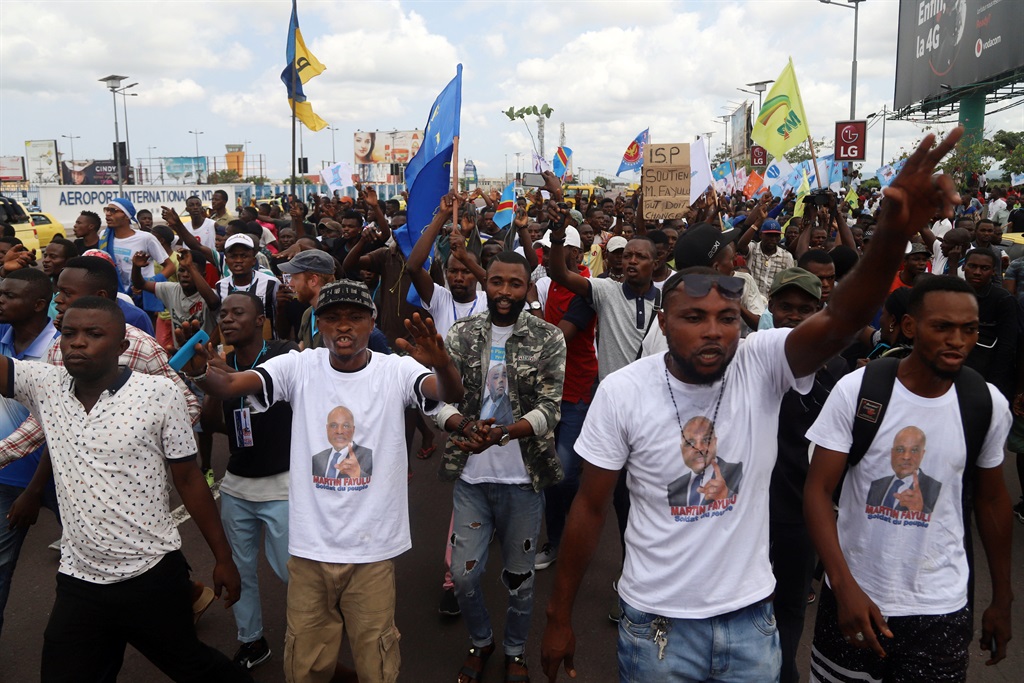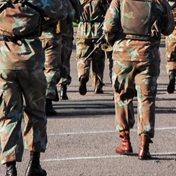
Barely 24 hours after seven opposition leaders in the Democratic Republic of Congo sealed the deal to unite behind one candidate in the December polls, the resolution broke down sooner than the campaign team hit the ground running.
Felix Tshisekedi, leader of the Union for Democracy and Social Progress (UDPS), and Vital Kamerhe of the Union for the Congolese Nation (UNC) pulled out within hours of sealing the agreement.
The seven opposition leaders that met in Geneva concluded on November 11 that Martin Fayulu, a businessman and parliamentarian, would be their sole candidate as they seek to unseat President Joseph Kabila’s ruling coalition.
Among the seven were former Katanga governor Moise Katumbi and former vice president Jean Pierre Bemba.
Both Katumbi and Bemba have been prevented from contesting the election with the former, now in exile in Belgium, denied to return to the Democratic Republic of Congo.
Former Prime Minister Adolphe Muzito and economist Freddy Matungulu were also part of the seven that appended their signature to the agreement organised by the Kofi Annan Foundation.
Before long, the deal cracked. Tshisekedi jumped ship and was followed by Kamerhe.
With Katumbi and Bemba out of the contest, Tshisekedi and Kamerhe are considered favourites ahead of more than 10 candidates.
Following his withdrawal, Tshisekedi issued a statement stating: “I have realised that the action we took in Geneva was not understood by the party base.”
The statement came moments after protests by Tshisekedi’s followers.
They demanded to know why the UDPS leader was not the chosen one in the united opposition scheme.
As if the decision by Tshisekedi to pull out of the united opposition candidate was not enough of a blow, Kamerhe delivered a follow-up punch.
He joined in chorusing Tshisekedi’s position that his leadership had neglected to consult widely with the base and was therefore withdrawing from the accord.
The news of the crack within the opposition was music to the ears of President Joseph Kabila’s camp – the People’s Party for Reconstruction and Democracy (PPRD).
A fragile opposition is seen as an opportunity for President Kabila’s anointed candidate Emmanuel Ramazani Shadary to ascend to the throne.
Shadary, a man currently under European Union (EU) sanctions for alleged crimes against humanity, is hugely unpopular among the Congolese electorate but the strength of incumbency is his surest hope.
Sentiments by some Congolese reinforced the widespread jubilation in Kabila’s camp on the news of the opposition fall-out.
“The opposition leaders are a let down. Shadary has just gained my vote,” remarked Jean Claude Kibaba, a resident of the country’s second largest city, Lubumbashi in the mineral rich Haut Katanga province.
Critics believe Tshisekedi and Kamerhe are selling out to the ruling party.
They allege that Tshisekedi and Kamerhe were heavily funded by the Kabila regime in order to legitimatise what many see as a farce of an election set for December 23.
Tshisekedi has gone ahead to hint his party will still go to the election even if the government insists on using the voting machines which are contentious in holding the poll.
Majority of the opposition leadership and citizens have rejected the use of the voting machines arguing the DRC is not ready for the devices going by its terrain, technology infrastructure and the ability for people to adapt to technology.
The government insists the voting machines will be used in the election, a position opponents believe is a gimmick to rig the election in favour of the ruling party candidate.
There is still some hope for the Congolese electorate as the other five who are backing Fayulu remain intact and are insisting on inviting the renegades back to the united opposition front.
Fayulu has also told journalists that “the agreement is still alive”.
He also tweeted: “I urge my brothers to overcome partisan considerations give priority to the nation’s higher interests. It’s never too late to do the right thing.”
Fayulu, in a separate interview with journalists, said the U-turn by Tshisekedi and Kamerhe was “extremely serious.”
“What message are we sending to children and the public, especially we in the opposition who are always saying that the Kabila government does not respect the Constitution?” he asked.
Katumbi and Bemba are rallying behind Fayulu and called on Tshisekedi and Kamerhe to rethink their U-turn in the interest of the Congolese people.
“I can never withdraw my signature,” Katumbi said. “In the interest of Congo, let our friends come back.”
Bemba’s official representative Fidele Babala, deputy secretary-general the Movement for the Liberation of Congo (MLC), voiced out: “Jean-Pierre Bemba signed this agreement and he supports this agreement 100 percent.
“We will do all in our power and capacity to carry Fayulu towards a democratic changeover of power.”
Fayulu is the president of the opposition party – Commitment for Citizenship and Development – and won the hearts of his opposition colleagues after demonstrating a charismatic and mature demeanor.
He turned 62 on November 21 and many in the opposition see him as the bridge between the bigwigs to carry the Congolese opposition through a credible path to democracy.
Congo has been plunged into chaos and its stability is teetering on flimsy ground with anything short of a credible election threatening the peace of the country and region.
Kabila assumed office in 2001 following the assassination of his father Laurent-Désiré who less than five years earlier had toppled long-time dictator Mobutu Sese Seko in a rebellion that swept through the vast central African nation.
Kabila’s son, Joseph, has remained in power for an additional two years despite his second term mandate ending in 2016.
He has served the DRC for 17 years.
Much of Congo is gripped in upheaval with sporadic conflicts between government forces and rebels recorded every day.
Millions of people are internally displaced with the UN suggesting that 4.5 million people in a population estimated at 80 million have fled their homes.
The humanitarian crises cannot be underestimated; it is evident especially that the DRC, rich in natural resources, has never known peace since gaining independence from Belgium 58 years ago.




 Publications
Publications
 Partners
Partners








